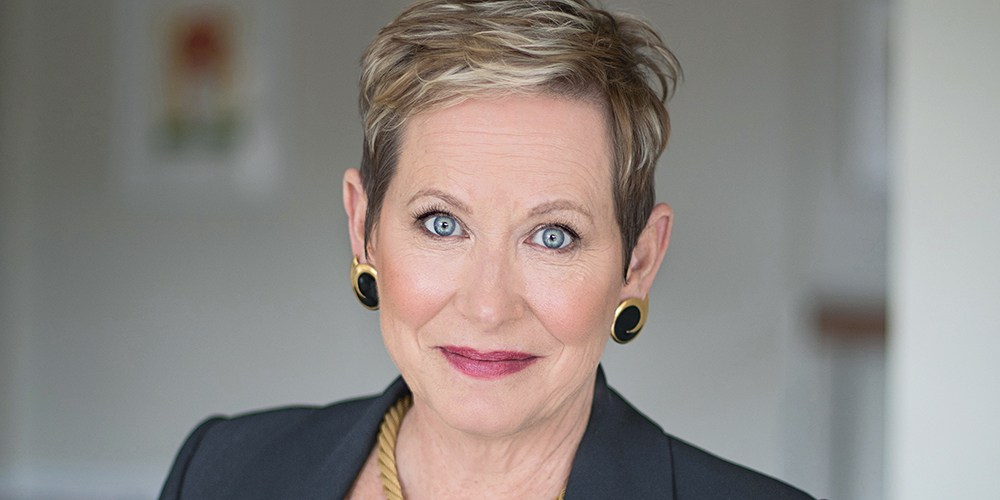Leadership Lessons

In this interview in the IoD Director’s magazine, I share my thoughts on productivity, women in tech, and how to beat analysis paraysis. First published in “The leadership lessons of digital marketing pioneer Susan Hallam”

Keep following your “North Star”. When I started Hallam Internet back in 1999, I was an expert in my field, I had a real passion for the business and my work had real value. These three elements still form the agency’s guiding vision today – our North Star. We have built our success on staying true to our values right from the beginning.
Learn how to cut your losses. I have made a few bad business decisions over the years, including one that cost a lot of money. What on Earth was I thinking? My big lesson from that was to recognise how emotion could cloud my judgment. It taught me the need to make more balanced decisions and, at the end of the day, cut my losses if necessary.
“This too shall pass.” The best piece of advice I’ve ever received came from my dad, who would remind me that nothing lasts forever. Don’t wait to celebrate the good times until it’s too late because you’re already focusing on what’s next on the plan. And keep the faith that you will survive the bad times. We have achieved great success at Hallam Internet, but we’ve also gone through some rough patches. His words – “this too shall pass” – keep it all in perspective.
We have great business ideas in this country – I’m an active supporter of initiatives such as the Midlands Engine, which champion my region’s commercial and cultural assets, for instance. But our competitors too often make more of our ideas, creating greater wealth and employment. When it comes to productivity, now is the time for businesses in this country to walk the walk and not just talk the talk. Productivity is about more than just saving time – we can use technology to help our companies adapt to change and gain a competitive advantage. Improving productivity by, say, adopting more flexible working is essential to the future success of UK plc.
There is no such thing as digital marketing any more. It is all just marketing, but marketing in a digital world. One of the biggest mistakes that a business can make is to put “digital” into a silo and expect some teenage geek or piece of software to fix all their problems. There are always tears before bedtime when a so-called digital guru creates a digital marketing solution that isn’t aligned with the goals of the business.
Don’t underestimate the importance of women in technology. Only 19 per cent of jobs in the UK tech sector are held by women at present, although they have a much higher representation in start-ups. Change is happening at grass-roots level, but it needs to happen faster. The push to get more diversity in this industry is only getting started. Initiatives such as retraining women who are re-entering the workforce and encouraging women to turn to tech for a second or third career are already making a difference.
Having excellent mentors has benefited my career in a huge way. My first job was at an SME and then I moved on to work for BT and Capital One. I recognise now how lucky I was to have great mentors at all three of those businesses. These people really cared about my development and gave me the opportunity and security to take risks and grow.
The best non-executive directors pose the trickiest questions. As the chair of Nottingham’s Creative Quarter Company, I add value by asking my executive colleagues challenging questions. The secret to doing this, of course, is to research the issue at hand before the meeting and then listen carefully. Asking such questions can bring a new perspective to bear and enable the board to get to heart of the matter more quickly.
Analysis paralysis kills the fun of running a business. When an opportunity arises, just say “yes” and then figure out how you can make it happen. We have won international contracts with organisations such as the United Nations by saying “yes” first and asking questions later.
Pay it forward. Passing on good deeds spreads positivity. I believe in the benefits of actions such as writing thank-you notes and lending your team a hand when the going gets tough. The agency also nominates a charity to support each year. Our current one is Nottingham Samaritans, for which we’ve raised £20,000.
Focus on your people and success will follow. Our leadership team works hard on building a culture that we call “the greatest place to work”. Our secret to finding great people for our company and retaining their loyalty is all about that “Team Hallam” culture. The kinds of experts we want to recruit have to want to join our organisation and they have to fit in culturally.
Susan Hallam read political science at Penn State University and then gained a master’s degree in information science from Drexel University, also in Pennsylvania. She moved to the UK in 1985 and became a senior lecturer in computing at Nottingham Trent University. After leaving academia in 1997 she held senior marketing roles at companies including BT and Capital One. In 1999 she started Hallam Internet, one of the first companies in the UK to specialise in digital marketing. Today it employs more than 60 people at its offices in Nottingham and London. The agency, which has won several industry awards, has clients including the Raleigh Bicycle Company, Speedo International and the United Nations. Last year Hallam was appointed an MBE for her services to entrepreneurship and innovation. She is a trustee of Nottingham Castle, a freeman of the City of London and the chair of Nottingham’s Creative Quarter Company, which was created to stimulate the city’s creative economy.
